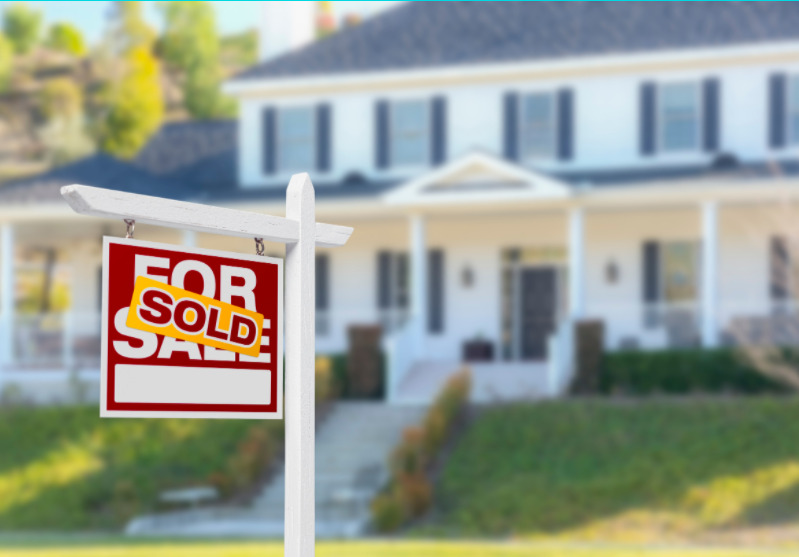
MANCHESTER, NH – The following analysis is from the Spring 2021 Housing Market Snapshot issued by NH Housing Finance Authority. The full report is included below.
“Concord and the Manchester-Nashua region are among the nation’s top 10 emerging housing markets” …“Upper Valley home sales
continue hot streak”…“Bonkers housing market”…”NH sees boom in out-of-state homebuyers.” These headlines may sound like hype, but
they are not: New Hampshire is a popular place to live and work, perhaps even more so since the pandemic opened up the possibility that
many could work remotely effectively. Yet our housing inventory – both homes to buy and to rent – and housing affordability are seriously
limiting the places that our state’s workforce will live, raise families, and retire.
Related Story ⇒ The State We’re In: Housing Frenzy
While the number of building permits filed for single- and multi-family housing was beginning to increase prior to the pandemic, single-family
building is now up significantly (perhaps in part because of the dampening of demand during the early days of the pandemic). This is encouraging news for housing supply in the state, yet there is still an urgent need to explore other solutions to expand the state’s housing supply.
When the second set of the 2020 Census results are released, we will learn how the demographics in the Granite State have changed in the
past 10 years. Preliminary data show New Hampshire’s population increased by about 4.6 percent, or almost 61,000 people, to a total of
1.379 million people since the 2010 Census, a slightly higher rate than in New England. In August, the census details will reveal the impact of
this increase on the amount of federal funds the state receives, as well as on our voting districts. The demographics will also show us more
specifically what the housing needs are for our state.
We continue to watch for and respond to signs that homeowners and renters are experiencing financial stress that may affect their ability
to remain in their homes. The NH Emergency Rental Assistance Program has, to date, distributed $7.5 million to help renters impacted by
the pandemic by providing assistance with rent and utilities so they can remain in their homes. The state also will be receiving federal funds
later this year to provide assistance to homeowners.
In July, we will release the results of our annual Residential Rental Cost Survey. If you are a property owner or manager, there is still time to
participate in this important data initiative. Contact us at info@nhhfa.org to take the short survey now.
– Dean J. Christon, Executive Director, New Hampshire Housing Finance Authority

New Construction Costs Skyrocketing
After a decade of slow increases in single-family building permits, the issuance of permits rose rapidly in 2020. This was contrary to predictions at the onset of the pandemic, and is consistent with the escalation in home prices statewide in the second half of 2020.
Multi-family permit activity has been increasing much more slowly since the Great Recession, and despite periodic monthly spikes in activity, the overall trend remains more modest.

[googleapps domain=”drive” dir=”file/d/1PZtesgA8i0E2q3nmFtkm8SODVIZW2p4d/preview” query=”” width=”640″ height=”480″ /]
 Need assistance with paying rent? If you are a renter or landlord, you may be eligible for the federally funded New Hampshire Emergency Rental Assistance Program (NHERAP) which launched March 15, 2021 to provide assistance to eligible residents who cannot pay their rent and utilities due to the impact of the COVID-19 pandemic. Landlords are also eligible to apply on behalf of a renter.
Need assistance with paying rent? If you are a renter or landlord, you may be eligible for the federally funded New Hampshire Emergency Rental Assistance Program (NHERAP) which launched March 15, 2021 to provide assistance to eligible residents who cannot pay their rent and utilities due to the impact of the COVID-19 pandemic. Landlords are also eligible to apply on behalf of a renter.
You are eligible for rental and/or utility assistance if:
-
At least one person in your household has qualified for unemployment benefits, had their income reduced, had significant costs, or had other financial hardship due to COVID-19. (You do not need to be receiving unemployment benefits payments to get help from this program.)
-
The household must be at risk for homelessness, be paying more than 30% of their income for rent and utilities, or live in unsafe or unhealthy housing, as well as meet certain income requirements.
This program is for renters and landlords, not homeowners.
Results of NHHFA’s annual Residential Rental Cost Survey is due out in July.
The five regional Community Action Partnership (CAP) agencies are accepting applications and administering payments for the program. Full program guidelines and the NHERAP application are available at www.CAPNH.org.
The NH Emergency Rental Assistance Program will:
-
Cover past-due and future rent payments; utilities, such as electricity, home heating costs, water, sewer, trash; and other housing-related costs such as internet and relocation expenses associated directly or indirectly with COVID-19. Relocation expenses including rental application fees, utility hook-up fees, and security deposits are eligible.
-
Assist eligible households that may qualify for financial assistance for past-due and future rent payments beginning April 1, 2020 for a period not to exceed 12 months (or 15 months when necessary to ensure housing stability, subject to funding availability).
-
Assist eligible households that may qualify for financial assistance for utility payments beginning March 13, 2020 for a period not to exceed 12 months (or 15 months when necessary to ensure housing stability, subject to funding availability). You may qualify for utility assistance even if you do not receive or need rental assistance.
-
Pay grants directly to the landlord or utility provider on behalf of the household.
-
Allow a landlord, with the tenant’s permission, to assist the tenant in applying for funds. We encourage tenants and landlords to talk to one another about participating in the program because both will need to provide information on the application.
-
For more details, please read these Frequently Asked Questions.
What is the application process for NH Emergency Rental Assistance Program?
-
Apply using the online application on each of the five Community Action Partnership agency websites. Click here to find the CAP agency that serves the community where you live.
-
Call your CAP agency or 2-1-1 and request a paper application to complete.
-
If you need assistance in completing the application, contact your CAP agency or call 2-1-1 to identify your CAP agency.
-
When you apply, the CAP agency will assist you in identifying the information and documents you need. This may include documentation of: unemployment, job loss, or hours being reduced, increased expenses, or other COVID-related income hardships
-
The CAP agencies will review applications, check eligibility, and process payments for expenses to landlords and utilities. CAP staff are also available to assist with the application process.
-
Applications are processed in the order that they are received.
-
Click here for Frequently Asked Questions about the NH Emergency Rental Assistance Program.
